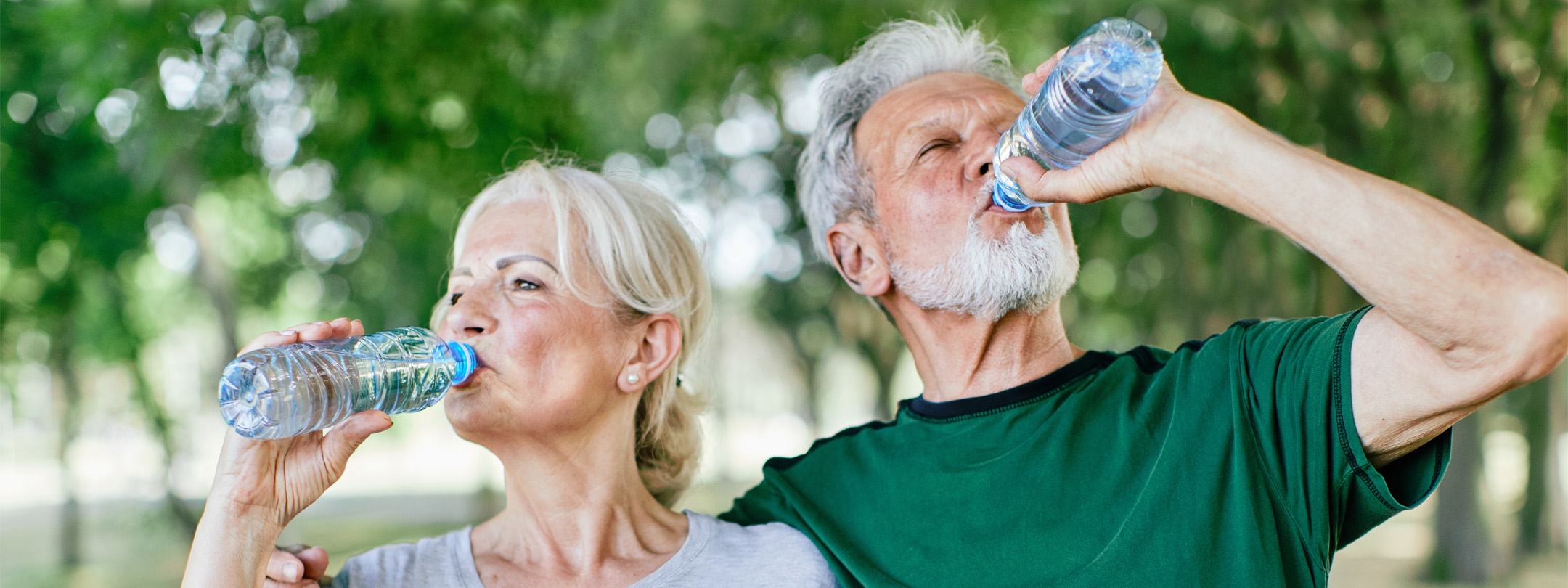You’ve probably heard people talk about hydration and dehydration, especially when referring to exercise and other forms of physical activity. When it’s especially hot outside, experts often talk more about the importance of staying hydrated. But if you’ve ever wondered what those terms mean and whether you’re getting enough water, keep reading to learn about hydration and how to avoid dehydration.
WATER INTAKE IS ESSENTIAL
Over half of your body is made up of water, and your body depends on water for various processes to occur. Some of these processes include regulating the temperature, eliminating waste products, and transporting oxygen and nutrients around the body. The muscles, organs, and tissues in your body rely heavily on water.
The human body gains and loses approximately 2.5 to 3 liters of water every day. Sweating, whether due to high temperatures or physical exertion, can cause you to lose even more water. Additionally, your brain includes a great deal of water, so improper hydration can make it hard to focus.
DRINKING ENOUGH WATER
Based on all of these functions and processes, it’s important to drink plenty of water every day. How much water you should drink each day depends on a few factors.
The first is your activity level, as people who are more active need more water. Those who live in especially hot climates may also sweat more, resulting in a need for more water each day.
Approximately 80% of a person’s water intake comes from the drinks they consume, while the remaining 20% comes from food. Drinking water should become a daily ritual. Men should have about 3.7 liters or 15.5 cups of water a day, and women should have 2.7 liters or 11.5 cups.
SIGNS OF DEHYDRATION
Insufficient water intake can result in dehydration, which occurs when the body loses or uses more fluids than it takes in. When the body is dehydrated, it no longer has enough fluids to function normally.
Taking certain medications can increase the risk of dehydration, as can spending a lot of time outdoors or engaging in physical activity without replenishing your fluids. In young children, dehydration usually occurs when they are ill and experience severe vomiting and/or diarrhea.
In infants and young children, symptoms of dehydration include:
- No urination (or wet diapers) for three hours
- No tears when crying
- Dry tongue and mouth
- Irritability
- Listlessness
- Eyes or cheeks appear sunken
In adults, symptoms include:
- Dark-colored and/or strongly odorous urine
- Confusion or trouble focusing
- Dizziness
- Fatigue
- Thirst
- Infrequent urination
CAN YOU DRINK TOO MUCH WATER?
Drinking too much water can cause a condition known as water intoxication. When this occurs, the kidneys are no longer able to eliminate the excess water, resulting in dilution of the blood sodium content. However, this is rarely a problem for well-nourished and healthy adults. Signs of excess water include cramps, spasms, and muscle weakness.
Staying hydrated is essential to your overall health and well-being. Dehydration can cause acute and ongoing medical problems, as well as impact your body’s ability to function properly.
If you don’t love drinking plain water, try adding a few slices of lime, lemon, or orange to amp up the flavor. A sliced cucumber or a few sprigs of mint can also transform the taste and make it easier to stay hydrated.
Related Articles

